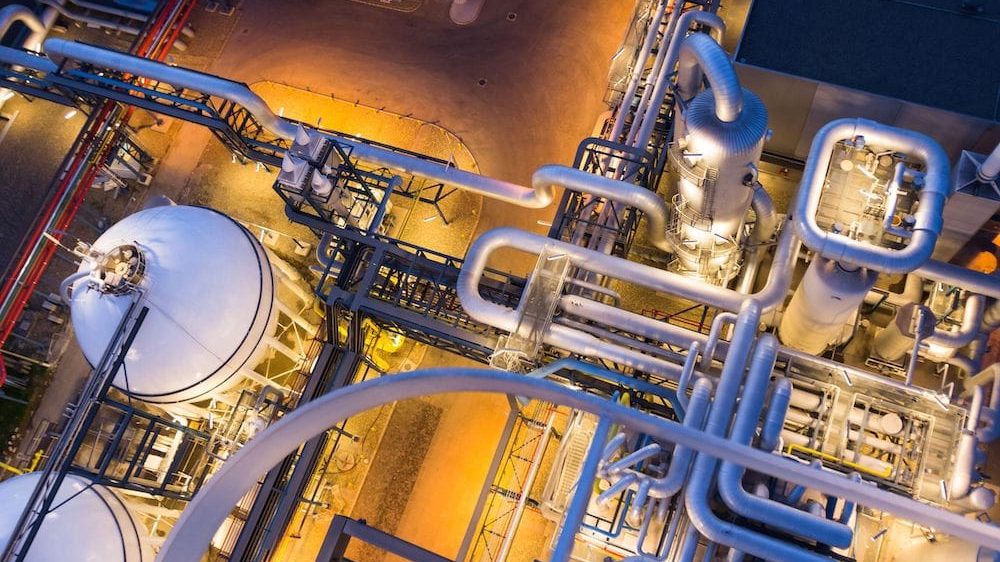Filtration Technologies
WHAT WE OFFER
Water filtration is a process for removing suspended solids from water using a physical process to screen or filter the particulate and letting the remaining clear water pass through. Industrial water filtration systems work through a variety of stages starting with removing the largest contaminants all the way down to sub-micro-levels. Industry best practices are to work in stages from a coarse screen to finer media in order to allow the water to continue to flow without rapidly blocking filtration.
Industrial water filtration is a necessary function to most every manufacturing organization, chemical, food, and pharmaceutical company. Impurities can throw off chemical processes, defile the quality of industrial processes, and may lead to downtime and equipment damage.
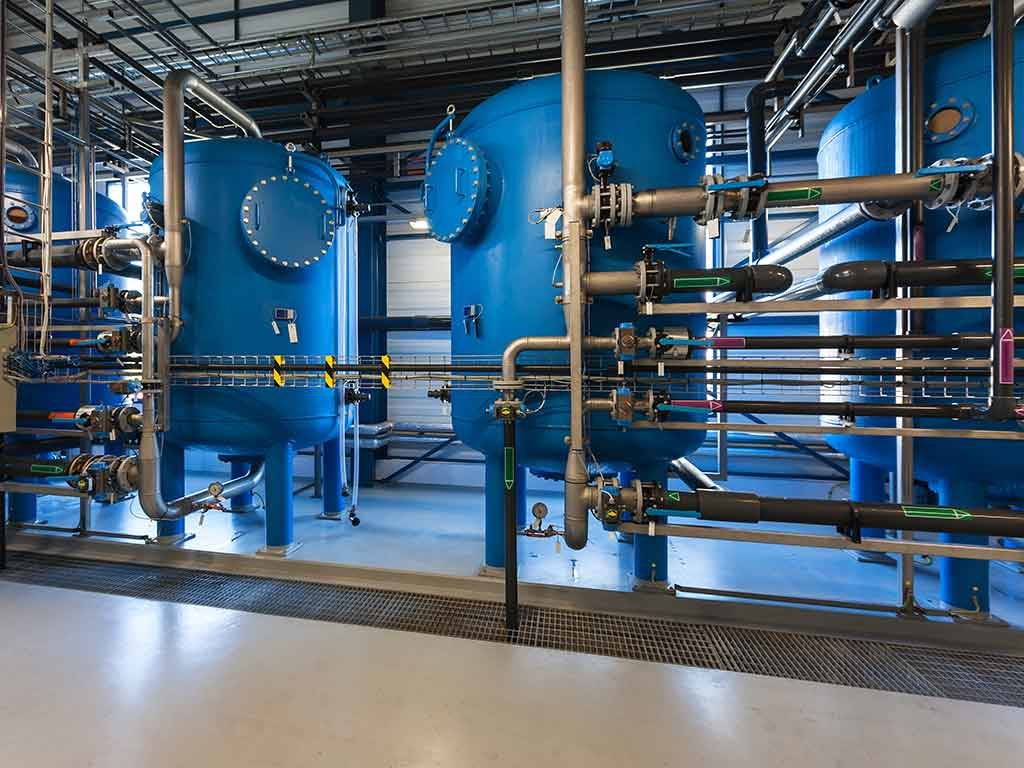
COMPREHENSIVE FILTRATION SYSTEMS
AWS provides a complete line of water filtration systems and uses our years of experience to help design the right filtration system to meet your water quality requirements. We develop an understanding of your applications in order to determine the correct level of filtration. Our experience in a very broad range of industries enables us to help troubleshoot existing problems or design a completely new filtration system solution that can be more efficient and economical than your current equipment. We offer a complete range of industrial water filtration systems, media, filters, and service for most every type of filtration system.
Industrial water filters are used to remove harmful impurities, such as contaminants, pollutants, particles, sediments, bacteria, parasites, viruses, fungi, and the taste of chlorine from the water we drink, use for cleaning purposes in the municipal and industrial projects. These water filters are used in an array of industries such as medical, pharmaceutical, food, agriculture, biotechnological, wastewater facilities, and aquariums.
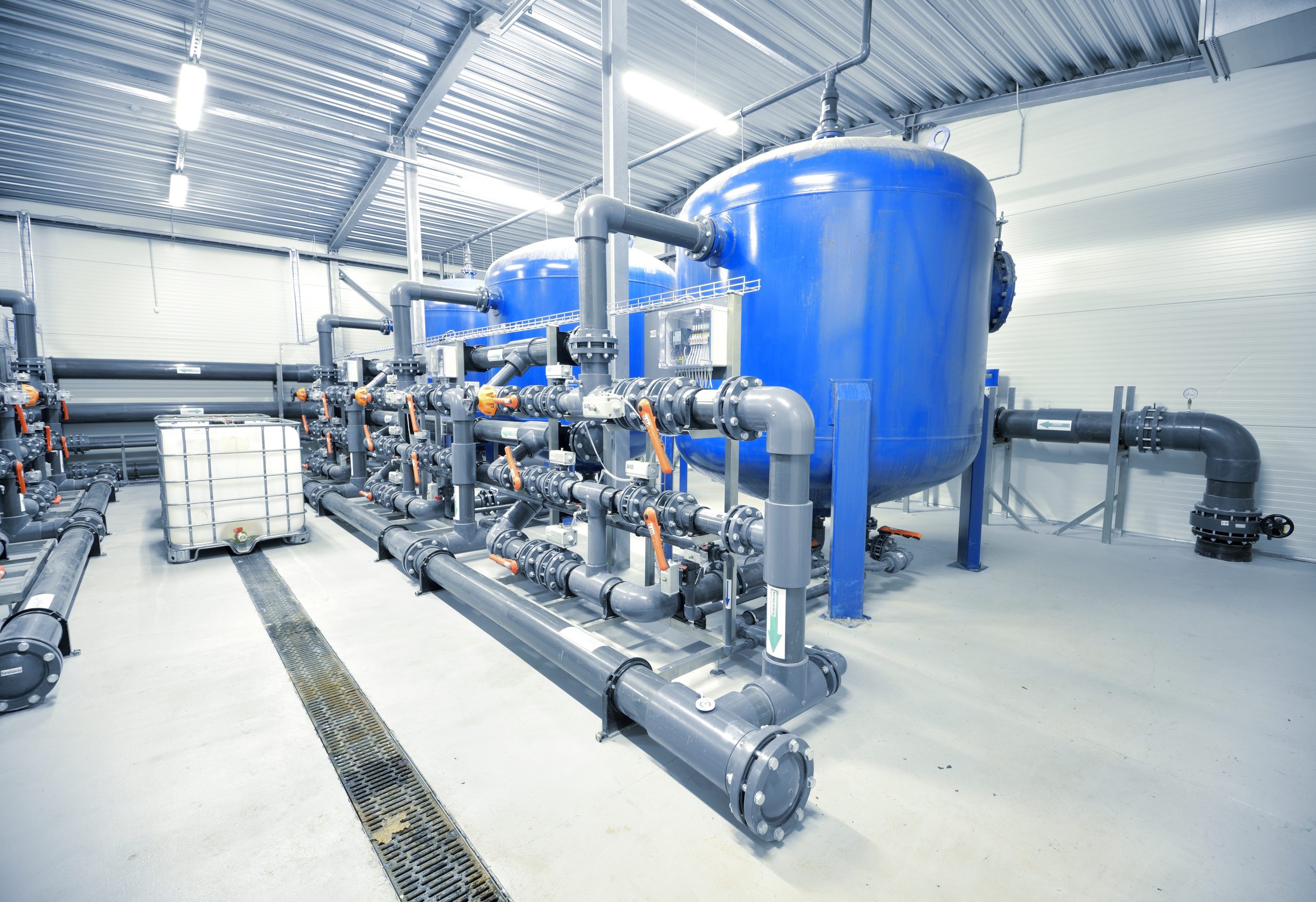
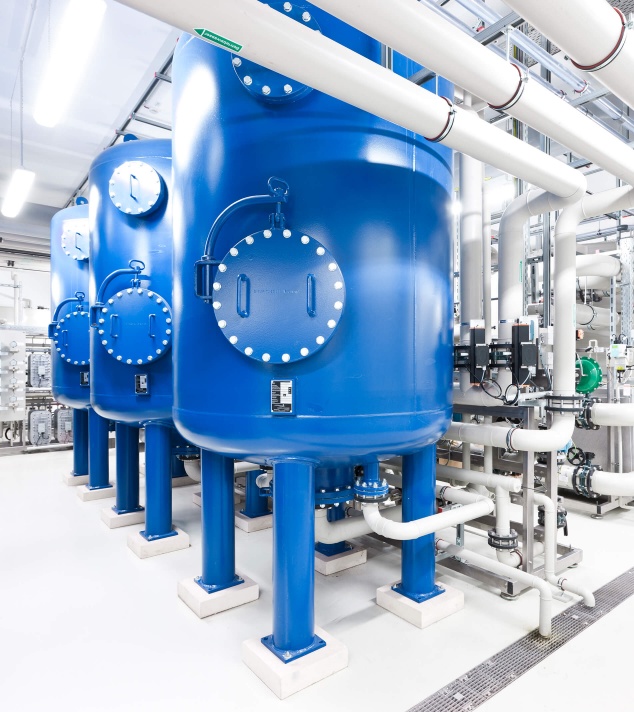
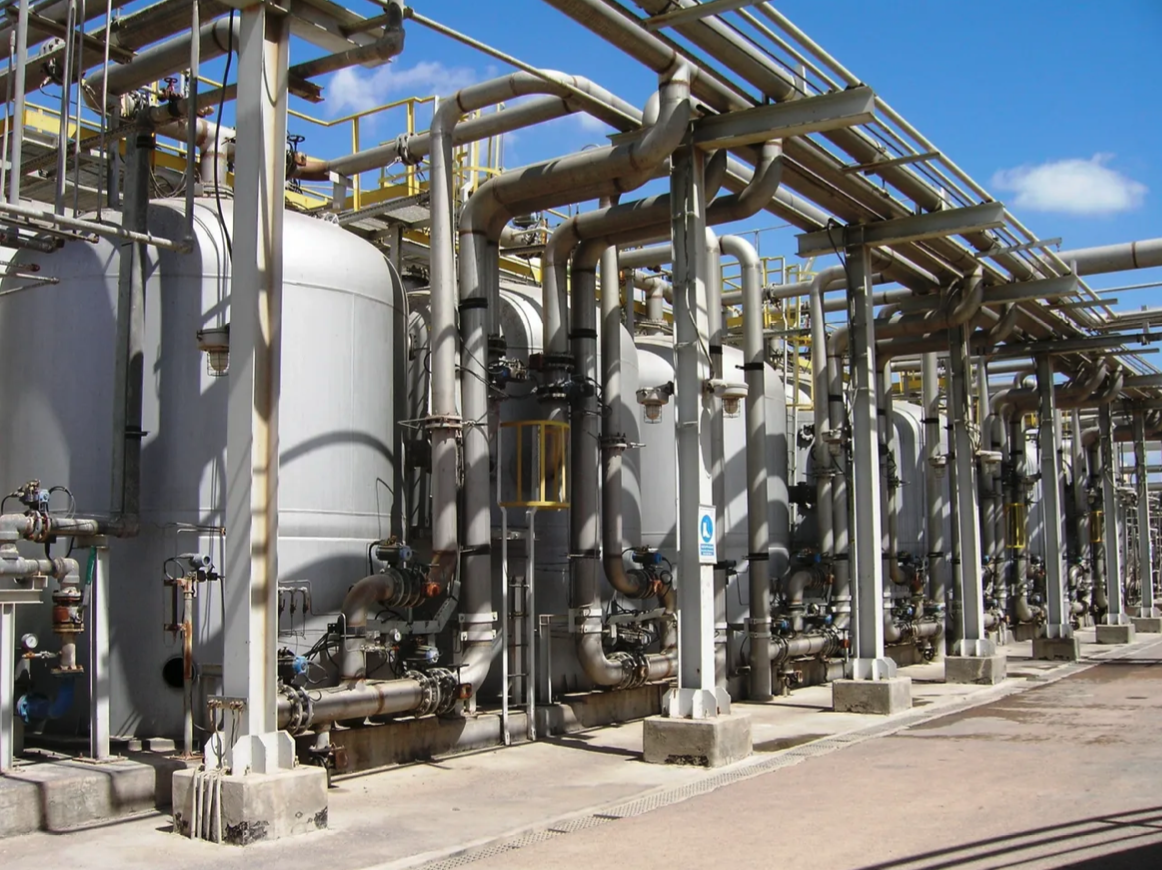
Types of Industrial Water Filters
There are several different types of water filters, filtration methods, and systems, including:
- Reverse osmosis removes contaminants by pushing tap water through a semipermeable membrane, reducing lead, mercury, chromium-6, chloramine, etc.
- Activated alumina is a filtration material designed to remove fluoride and arsenic and is commonly used by municipal water treatment systems.
- Ceramic filters are used in conjunction with other filters such as sediment or anti-scale filters, and percolate the water, blocking bacteria, pathogens, and other contaminants.
- Activated carbon filters are extremely porous, thus effective in remove larger particles from the water, such as sediments or silt, as well as odor and bad taste caused by chlorine and other contaminants.
- Alkaline/water ionizers work via the process of electrolysis to increase the pH of the water which therefore increases the water’s alkaline level, preventing the harmful process of oxidation.
- UV filters are a quick and safe way to disinfect water, using UV lamps to disrupt the DNA of — and destroy — harmful microorganisms.
- Water distillation is a purification process that uses heat to evaporate water and separate the contaminants, draining bacteria, viruses, chemicals, heavy metals, toxins, cysts, and pollutants.
Many of these methods and systems can be combined with other methods to increase their efficacy.
Media Types
- Activated Carbon :This is a highly effective in the reduction of undesirable tastes and odors associated with chlorinated water supplies. They include water filters for removing chlorine and organic contaminants from water used in commercial and industrial applications.
- Anthracite: Promotes higher service flow rates and longer filter runs with less head loss than single media filter beds. Backwash rates are reduced as well. Low uniformity coefficient anthracite filter media extends the life of your filter before the media must be changed out.
- Calcite or Limestone: Acidic waters will slowly dissolve the calcium carbonates to raise the pH which reduces the potential of copper, lead and other metals found in water filtration systems.
- Garnet: Almandite garnet is a high hardness, high density granular filter media. It can be used extremely effectively as the lower strata in a dual media filter bed. Its high specific gravity as well as its chemical and abrasive resistance makes garnet ideal for filtration media.
- Zeolite: This material offers a high surface charge density and high cation exchange capacity. Because it can bind to so many materials it is often used as water filtration media for a variety of applications and industries.
- Resin: This high capacity, high quality gel-type cation resin is capable of meeting the most exacting requirements of commercial, institutional and industrial water softeners. It is supplied in sodium form as colored translucent beads and does not contain chlorinated solvents. The manufacturing process insures low taste, odor and color throw for potable waters.

